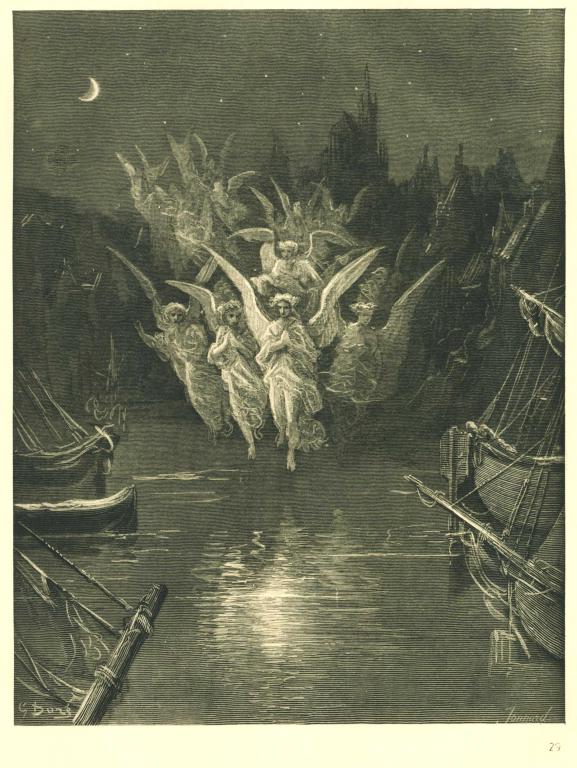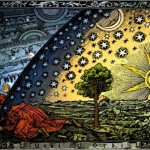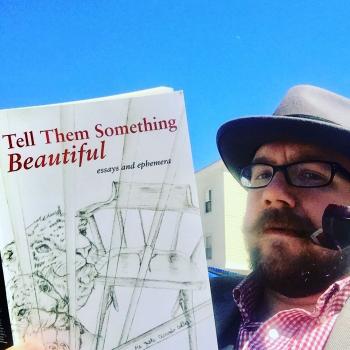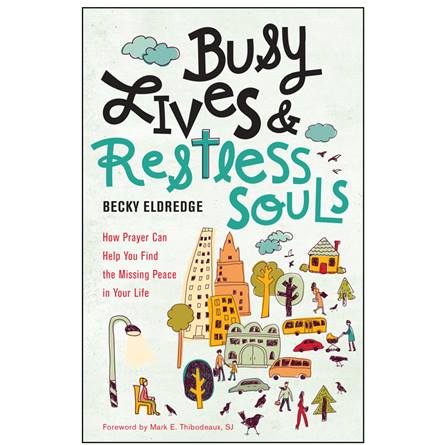Eric Austin Lee
Feast of St Lucy
13 December 2013
On the Edge of Elfland
West Sacramento, California
Dear Friends and Family,
David has kindly sent out a call for our ‘My 3 Books’, in the spirit of Theology Studio‘s tradition of asking its interviewee’s which 3 books have had the most profound affect upon them theologically. Such decisions are always incredibly difficult ones, and I could add at least another ten books to this list, but, if one were to have to choose, I think this is where I would start: 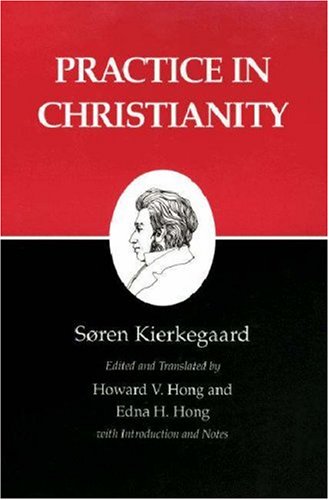 Practice in Christianity, by Anti-Climacus / Soren Kierkegaard, translated and edited by Howard V. Hong and Edna H. Hong (Princeton: Princeton University Press, 1991).
Practice in Christianity, by Anti-Climacus / Soren Kierkegaard, translated and edited by Howard V. Hong and Edna H. Hong (Princeton: Princeton University Press, 1991).
I first read this during my MA at PLNU, under the direction of Professor Mike Lodahl. It was an exhilarating read, not only for its critique of ‘established Christianity’, but also because this book in many ways sums up Kierkegaard’s thought in a pseudonym that is even ‘higher’ than he is able to personally achieve. A later book, Practice in Christianity also combines his critical, pseudonomous style with the ‘upbuilding discourse’-style as the latter part of the book consists of meditations on Scripture, much like those found in Eighteen Upbuilding Discourses and Words of Love (amongst others). One of my favourite meditations on Scripture is his series of discourses on John 12:32. The creativity and inspiration behind these Scriptural meditations are some of the brightest guideposts in the tradition. For me, primarily, the energy and passion about what it means to be a Christian for Anti-Climacus has shaped a great deal of my own journey: Christianity is not meant to be an easy life, for the way of the Cross is a difficult one, and anything which says otherwise “abolishes Christianity!”

Genealogy of Nihilism: Philosophies of Nothing and the Difference of Theology, by Conor Cunningham (London: Routledge, 2002).
I distinctly remember where I was when I finished this book: on my lunch hour at a Mexican food restaurant in San Diego next to the I-5 freeway. It stuck with me because, when I finished this book, I’d never read anything else like it. Yes, I had just finished John Milbank’s wonderful Theology and Social Theory, but, even though it was one of the most difficult books I had ever read at that point, something about this work really struck me. The combination of very dense philosophy on the one hand with beautiful theological prose on the other, alongside such a variety of sources that I wouldn’t have regularly thought was possible. But beyond stylist remarks, it was Cunningham’s vision of proposing a theological alternative to the logic of nihilism that, contrary to most un-nuanced accounts by his detractors, is not simply one that argues that theology is ‘better’ than nihilism; rather, he shows that both nihilism and theology begin with accounts of nothingness: the former cannot stand upon it’s own edifice and ultimately becomes intelligible, while the latter Christian account is primarily one of gift that, out of nothing, God creates. On the one hand, such a logic is simple, but as it is not a ‘simplistic’ one, it is also the kind of account that takes a lifetime — an eternity, even — to understand, needing constant education (to echo Luigi Giussani). Those who know me will know I’m very indebted to Cunningham’s wide-ranging approach and style, not to mention the fact that he was my Doktorvater, so this book will always stay with me. I return to it often, if just for the bibliography alone!
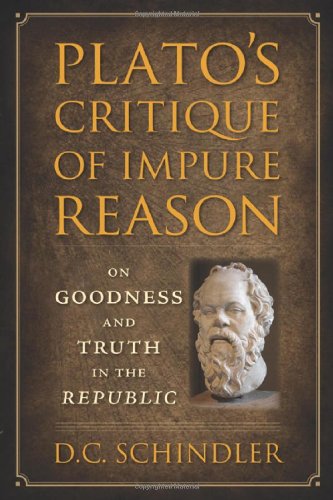 Plato’s Critique of Impure Reason: On Goodness and Truth in the Republic, by D. C. Schindler (Washington, D. C.: Catholic University of America Press, 2008).
Plato’s Critique of Impure Reason: On Goodness and Truth in the Republic, by D. C. Schindler (Washington, D. C.: Catholic University of America Press, 2008).
It is hard to imagine that a book on Plato like this exists. I’ve read a lot of scholarship on Plato and Socrates, and while some of it is very good and most of it is rather boring, this book stands out like no other. It is the kind of philosophical book where — and not only because I know the author’s theological commitments and indebtedness to Hans Urs von Balthasar — one can see the theological transcendence brimming from every chapter, without even mentioning Christ or Scripture. It takes a mind attuned to the beautiful to be able to read off of philosophical texts (eg, the ‘book of nature’, so to speak) and see a reality resplendent with the light of the Good, all while still maintaining a high standard of scholarship. All of this is prolegomena to say that D. C. Schindler’s work sums up a recent current to extricate Plato from the usual crude ‘dualisms’ with which he is accused. It can be summed up as a kind of ‘third way’ approach, one that argues not through analytic readings of the typical ‘What is F?’ arguments, but through an interpretation which attempts to order Plato’s works toward not just the Republic, but under Plato’s understanding of the Good itself. In this reading, the reader is reminded that Socrates, as the ‘stand-in’ for the Good, always returns to the cave in order to ‘save the appearances’. It is not a gnostic flight from the flesh into the transcendent forms, but an argument for understanding the particular at all, illuminated by the light of the Good.
Sincerely Yours,
Eric
Eric Austin Lee is an independent scholar and web developer currently living in Sacramento, California. After recently receiving his PhD in Theology at the University of Nottingham, he is currently co-editing a collected volume on ‘The Soul’, acting as Managing Editor at the Radical Orthodoxy: Theology, Philosophy, Politics journal, and turning his PhD thesis into a book. His hobbies include playing European-style board games, exploring the world of craft beer, and smoking fine pipe tobacco.
Related articles
- My 3 Books (or The Post Where I Steal Ideas from The Theology Studio) (elflandletters.wordpress.com)
- My 3 Books
(
theodramatics.wordpress.com)


